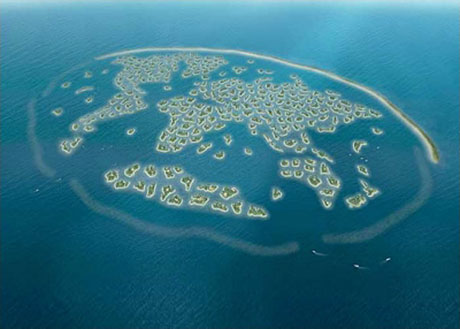...
Being at Ikea the other day, I spent a considerable amount of time watching people as they walked pass me. Okay, not thaat kinda watch. While waiting for a friend, what better way to kill time than to wonder about the people around you?
And I watched as a lady un-thinkingly took two bags of chips into her arms, and proceeded to take some other items from the food section. Overwhelmed with curiosity, I walked over to see how much a bag of chips would cost. I don't remember now, but somewhere around RM 7.90?
My mind did a quick calculation as to how much money one would have to earn each month to buy two bags of potato chips that costs RM 7.90 each without having the words "BUDGET!!!" flashing before you. Assuming of course, that if you have enough money to not think twice about expensive potato chips, you'd have enough money for many, many other things.
I twitched, wondering if I'd ever earn enough money to be unconcerned about how to make the most of my RM 7.90.
...
Been thinking quite a bit about the pieces of coloured paper that I hardly see in my wallet these days. Well, with unemployment comes unmoneyment. And the last I heard, money is still the solution to man's problems.
Back to our environment.
Watching how our world really is coming to an end unnaturally, hastened by our actions - made me wonder more about money and what it gives us.
...
Money doesn't give us a wider range of choices anymore. It now gives us, rights.
...
With money, we now have the right to own our first car, and not be victims of the public transportation system any longer. And with more money, we have more rights to buy more cars.
And when you have many cars and still, more incoming money, we then have the upgraded right of buying better quality oil-guzzling cars. The kind that drink up 3 times more dinosaur juice than actually needed.
...
Money gives us the right to use more water than we really need to, because, we can afford to pay for it.
...
Money gives us the right to turn on the air-condition at its maximum capacity because, well, we have what it takes to afford it.
...
Money gives us the right to convenience. Who needs to carry a water tumbler with them when plastic bottles of mineral water are sold at every corner?
...
Money gives us the right to be bosses. If not bosses of a company, at the very least, bosses of one - the Indonesian maid. We work them with not even a single day off in 2 years, whilst we complain about our dwindling amount of annual leave.
Because we paid them to work.
...
Money gave Dubai the power to do this!

 And this!
And this!
Man-made islands in the shape of the world, and a palm tree. But, all at the cost of our environment.
...
And the need for money gives us the right to dig, abuse, misuse, exploit - our natural resources that really, doesn't belong to us anyway.
...
I wonder about the rightness of our rights. And where our quest for Vitamin M will bring us one day.
...
Well. The thought bubbles originate from the person who will die with only a laptop to her name at this point in time.
Perhaps it will give me more right to think about money matters when I actually have them.
Time to water the money tree?


5 comments:
I have a whole masters subject on this, on the issue of sustainability. The recurring genesis of these issues I noticed is the almost inescapable capitalist driven economy in which we operate in, fueled by the inexorable advancement in technology. Which is exactly the one word you explicitly pointed out- money. I agree with you when you said that money doesn't give choices anymore, because the once perceived as luxury items before the industrial revolution are readily affordable to the over growing middle class. Things are so cheap now that we throw away the old and buy new ones without thinking twice. When you look at history and during the post-war period, people started having surpluses in their income, hence they can purchase things beyond just necessities. People then didn't notice the environmental implications then, but perceive it as good for the economy. Consumer behaviour do play an importance as well. Over consumption, population growth, urbanization, and many more factors that affects the environment are arguably sourced by capitalism. Nontheless, it is sad that we start taking initiatives only after things get severe. They say we'll run out of oil at 2030, hybrid cars won't solve any issues, they just act as a bandaid. As hybrid cars get more and more common, they will increase in numbers, consequently that increase will nullify its efficiency in the end. Technology alone isn't the answer. We have almost the technology to-date to salvage the problems, so to speak. But what's the use of it when no one is doing anything? The paramount of change is our behaviour towards the planet. If only we can see earth as a responsibility and rebuke the perception that "my little contribution won't make any difference anyways", and if people value things not by money. It's hard to go green because the system we live in forces us to conform to it, ie. some need to drive to work. but that's not an excuse. ahhhh. what am i doing here. do assignment!
wahh.. :s THERE u go the balance score card.
GOSH. :)
love you two! :)
Great thesis there James.
But from the economics point of view, I don't think it is capitalism that drives us to do what we do today. Capitalism is basically just markets being allowed to work freely without intervention from the state.
But i do agree with you in the sense that it is people's behaviour that would finally lead to significant change. (Although I severely think its only through catastrophe that will wake us up to do something.)
I had the privilege to attend an environmental and social change thinkthank event in London last year where forerunners of NGOs were involved in. It was just a whole day of ideas brimming push back and forth.
What I learn is that it is true, that individuals all play a part. It is up to each and every individual's choice to change and make a difference. Also, it's great that we spread things like that around to create more sense of awareness.
Most importantly, what I learn from the event is that we must be brave to change. And push to change. Real events happened in history because individuals stood up and called out for change and pushed for it, even though it seemed impossible at that time. Likewise, we still have time to make a difference..... so start carrying our own reusable bags! Shop less. Buy energy efficient cars. Do as much recycling! And I can't think of more but i will soon!!!
And yes, I too have to go back to my books.. but great discussion here! Thanks Esther for that great post.
Wow. It has become a discussion involving economics and principles of sustainability. And of course, throwing in a little randomness too :)
I reckon the whole problem lies with us merely being who we are - human beings.
And like you both said it, I think the solution lies with us as well.
And all that will probably happen, when we know the Creator's heart for everything He created - man and environment alike.
Bravo bravo, very well presented arguments from all aspects. I thoroughly enjoyed reading them. I must ad mit that I am only starting to care a little more about the environment as of late (with much regret). I am amazed how back in school, we (or maybe it's just me) were brought up with the mentality that taking care of the environment is a cause by and for the hippies or westerners. But a little goes a long way. It's true no matter what ppl say. There may not be much resources left, but educate our kids we must (said in a true yoda fashion).
Post a Comment